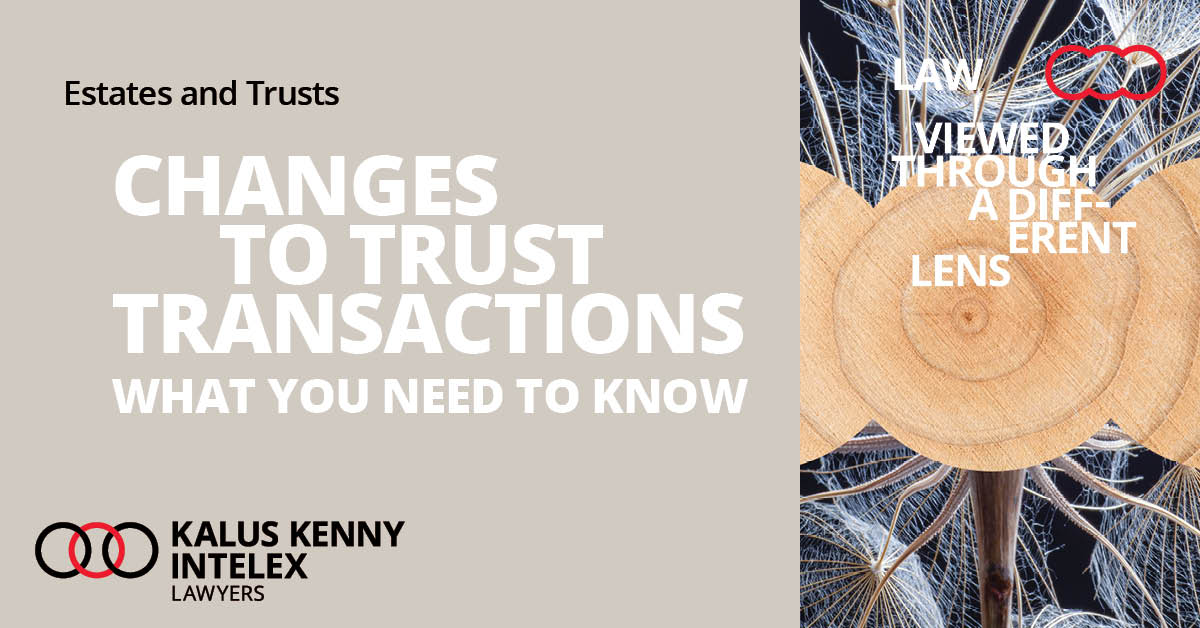The Australian Taxation Office (ATO) has recently foreshadowed the application of section 100A of the Income Tax Assessment Act 1936 (Cth) (the Act) will be broadened. The implications are that trust transactions that usually would not incur any adverse tax implications may now be captured by the Act at the highest possible rate.
It is crucial that trustees, beneficiaries and advisors understand the implications of this new interpretation to ensure trusts are managed in the most effective way possible.
What is section 100A?
Under section 100A, the net income of a trust may be taxed at the highest marginal rate (49%) if:
- reimbursement agreement is entered into; and
- the reimbursement agreement is not a part of ordinary family or commercial dealings.
Why is this important?
One of the foundations for the use of trusts is to allow for the effective management of tax affairs. A trust deed provides various powers to the trustee, one of which includes the power to ‘lend, borrow or apply trust money’. Historically, this has been used to stream income between one or more beneficiaries in order to minimise the tax payable on income. This arrangement is referred to as a reimbursement agreement.
What is a reimbursement agreement?
A reimbursement agreement occurs when:
- a beneficiary who is entitled to a preferable tax rate absorbs the trust benefit on behalf of another beneficiary who sits at a high tax margin. The trust benefit is then applied to the latter beneficiary who has full enjoyment of the distribution but does not pay the high tax rate that should apply to them; and
- at least one party enters into an agreement for purposes that include getting a tax benefit.
‘Benefit’ includes the payment or loan of money, the transfer of property, the provision of services or other benefits, or the release, abandonment, failure to demand payment, or postponed payment, of a debt.
‘Agreement’ is defined widely to include arrangements and understandings that can be informal, express or implied.
The proposed changes anticipate that a reimbursement agreement will extend to situations where a trustee lends trust funds or provides an interest free loan to a person who is not a presently entitled beneficiary.
What are the exceptions?
The maximum tax rate will not apply to reimbursement agreements if the trustee can show that the agreement was entered into in the course of ordinary family or commercial dealings.
Ordinary Family Dealings
A dealing will not automatically be ‘an ordinary family dealing’ just because it takes place in a family context. Instead, further factors will be assessed by the Commissioner such as whether or not the reimbursement agreement arose when tending to everyday family obligations, expenses and forward planning requirements.
The Courts have found that behaviour that may be unusual in other contexts, may be usual in the family environment. Behaviours such as these include gifting an asset to a family member without the expectation of reward or repayment.
Commercial dealings
The definition of commercial dealings is more elusive. The case of FCT v Prestige Motors Pty Ltd as Trustee of the Prestige Toyota Trust (1998) 153 ALR 19 determined that if there is a commercial benefit or utility in a reimbursement agreement then the exception to section 100A may apply. However, it is unlikely that a reimbursement agreement has been entered into in the course of ordinary commercial dealings in the absence of any viable commercial benefit.
The make or break test
When assessing whether the exceptions to section 100A applies, the Commissioner of Taxation (the Commissioner) looks at the dominant purpose of the agreement. The Commissioner will assess:
- the complexity of the agreement;
- any fiduciary duties;
- whether or not the agreement is connected to everyday family obligations;
- whether or not it is pre-arranged; and
- review the agreement for any legal facade which is seeking to hide the agreement’s true purpose.
Throughout the Commissioner’s assessment of reimbursement agreements, a key question is kept in mind: ‘Is this agreement entered into for the prominent purpose of avoiding tax?’ If the answer is yes then the 49% tax rate shall apply.
It is important to note that there is no limitation period applicable under the Act. As a result, the Commissioner can make determinations regarding historic reimbursement agreements and add interest to the amount repayable.
If you require the terms of your trust reviewed, please contact our Estate Planning and Wealth Protection team.




